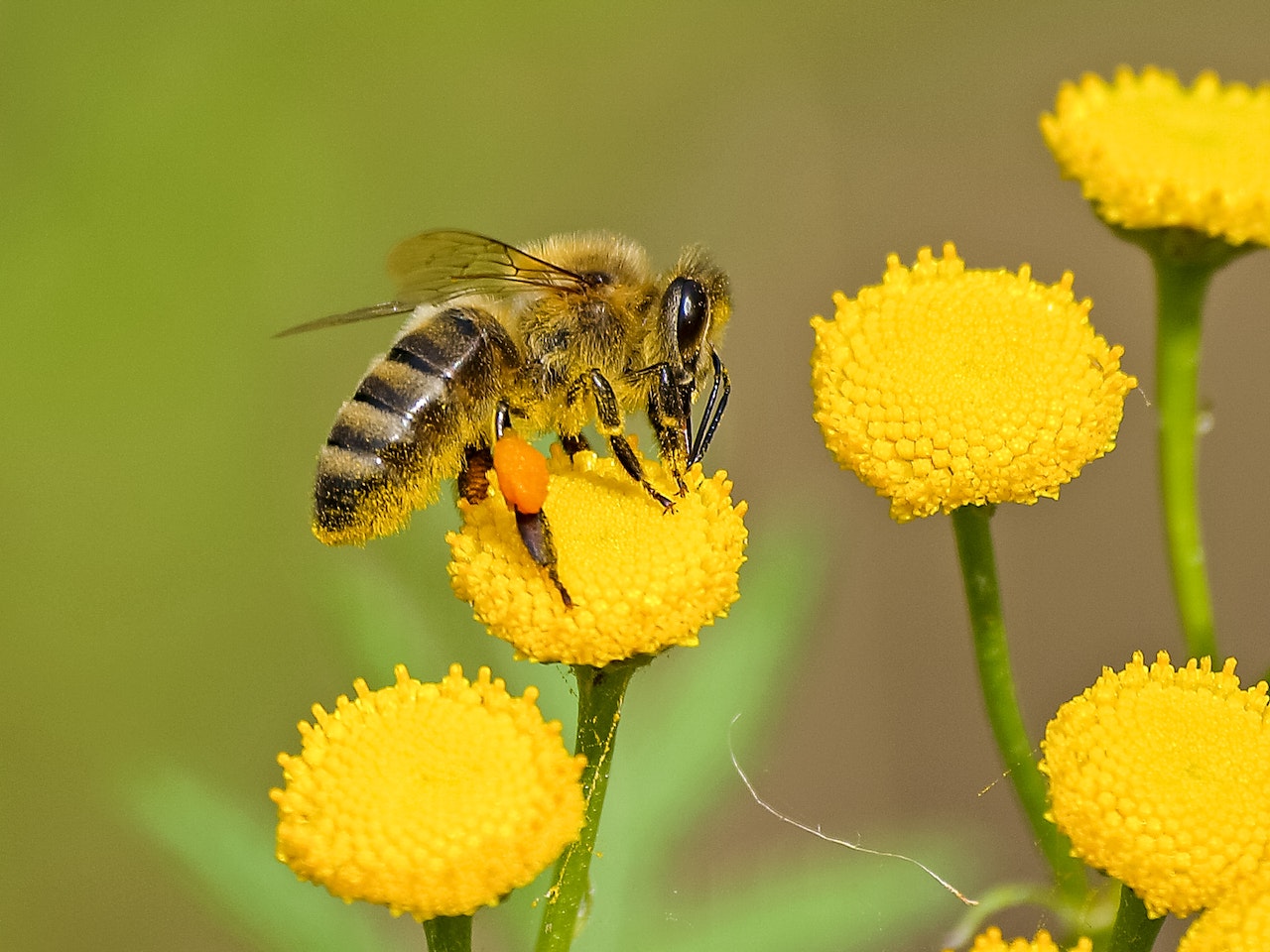Bees and Your Health
I don’t know if many doctors care about bee populations, though I would argue they should.
My guess is the vast majority of doctors only care about bees when they encounter an EpiPen and bee allergy or have to deal with them flying around their yard.
Which is how most people view honey bees.
Something they have to deal with or be afraid of.
And yet, bees are probably one of the most important animals on the planet. They pollinate our flowers, they provide one of the most pure forms of carbohydrates in the world, and they are a signaling species indicating the health of an ecosystem.
The fact they are so important to the health of the planet is also a reason you should care about their dwindling numbers.
Yes, honey bee populations are on the decline.
If you don’t believe me just go to a city park and look at the clover fields and any wildflowers growing, they’re just not around like they used to be.
Today I’m going to tell you why the populations are going down, why it matters, and how you can help.
Bee Populations Are Dying Off
You may have read headlines about the falling bee population (or maybe not).
It’s not “breaking news,” but in a way, it should be.
“US bee populations have steadily declined over the past few decades. While commercial honey bee colonies have received attention from the CDC to restore stability, wild bee populations continue to dwindle.
The importance of bees cannot be overstated, as they are responsible for pollinating 80% of flowering plants. In the US, honey bees pollinate $15 billion in agricultural products each year, including more than 130 types of fruit, nuts, and vegetables.
Pollinators, including honey bees and wild bees, add up to $200 billion annually in ecological services. These include their vital role in producing food for wildlife, maintaining soil health, and keeping water clean, in addition to their role in pollinating agricultural products.
And while the monetary side of things is certainly an eye-popping statistic, I want you to think of what I’ve been writing about for the past few years.
Our diets should consist of wild-caught animals or animals raised on their natural food sources.
The vegetables and fruits (and herbs, nuts, etc.) you eat also need to be free of pesticides and herbicides and as “natural” as possible.
Sadly if bee populations continue to dwindle it will become nearly impossible to get foods like this in your diet. Everything you eat will be fortified with nutrients and raised in environments that are at best artificial renderings of a normal environment and at worst, they will be raised in factory-type settings.
None of this is ideal.
So why are they declining you might wonder.
Again, from USA Facts:
“US bee populations are declining due to parasites, pesticides, habitat loss, disease, and more. These losses have critical implications for food production and ecosystem health. In spring 2022, more than 40% of all colonies were afflicted with varroa mites, a parasite that targets bees.
This combination of issues, which can lead bee colonies to collapse quickly, has been called Colony Collapse Disorder.
Despite this disorder, commercial honey bee populations have increased by 10% since 2006, thanks in part to the close monitoring of colony health by the CDC and the Environmental Protection Agency.
The same cannot be said for wild (or native) bees, which are responsible for pollinating the plants native to their environment. While commercial honey bees are adept at pollinating many different species, wild bees are more efficient at pollinating specific crops in their area.
It is far from ideal that wild bee populations continue to die off as this reflects a serious problem with our environment.
It’s indicative of a state of dishealth that needs to be taken seriously.
You can almost think of wild bees dying off like this as the first sign of a major disease setting in. Being able to identify that there’s an issue at hand gives us the ability to contend with something seriously dangerous and be able to fight it.
Problematically, we don’t know where we are in this stage of disease progression.
Scientists admit we need to learn more about wild bees, what their relationships with flowering plants are, and how the plants bees visit affect other animals.
This is why I believe we all need to be doing our part to help rehabilitate bee populations on our own.
How You Can Help Grow Wild Bee Populations
The good news is because we are part of the natural environment, we have a good chance to help positively influence wild bee populations.
And it’s not that hard.
You don’t need to become a beekeeper to give bees a fighting chance at restoring their population levels.
You can do a few simple things around your home to help.
The first is to stop using herbicides and pesticides. These chemicals are ones that I suggest avoiding for your health, and bees are more easily affected by them than you are!
The second is to make your yard a pollinator habitat.
Here’s a list of different plants that will give bees pollination opportunities and that will also restore ecological diversity in your backyard.
Now you should know that you need to have both nectar and pollen plants.
I know, I used to think they were all the same.
But if you got rid of nectar, [bees] die within 24 hours.
That’s their fuel. But without pollen, they can’t produce new bees, so the population will be affected.
Interestingly you also want to limit exotic plants as they’re going to interfere with how native plants and native pollinators perform and disrupt bee populations.
Also, I know how hard this is for Americans to hear, but a well-manicured lawn is not ideal for bee populations.
Basically the more unkempt it is, the better.
Having a source of water available to them is helpful (this is why backyard pools are constantly filled with bees).
And, giving them a potential nesting ground is helpful as well. You could buy a hive like beekeepers use and leave it on the property, but that may require maintenance. Or, you could just leave your yard open with easy-to-build nests that you can learn about on YouTube.
Again, it’s easy and doesn’t require much effort.
The point is bees are important and it’s easy for us to contribute to their betterment, and I think it’s a great idea for all of us to try 🙂
|
Talk soon,
Dr. Wiggy
|


